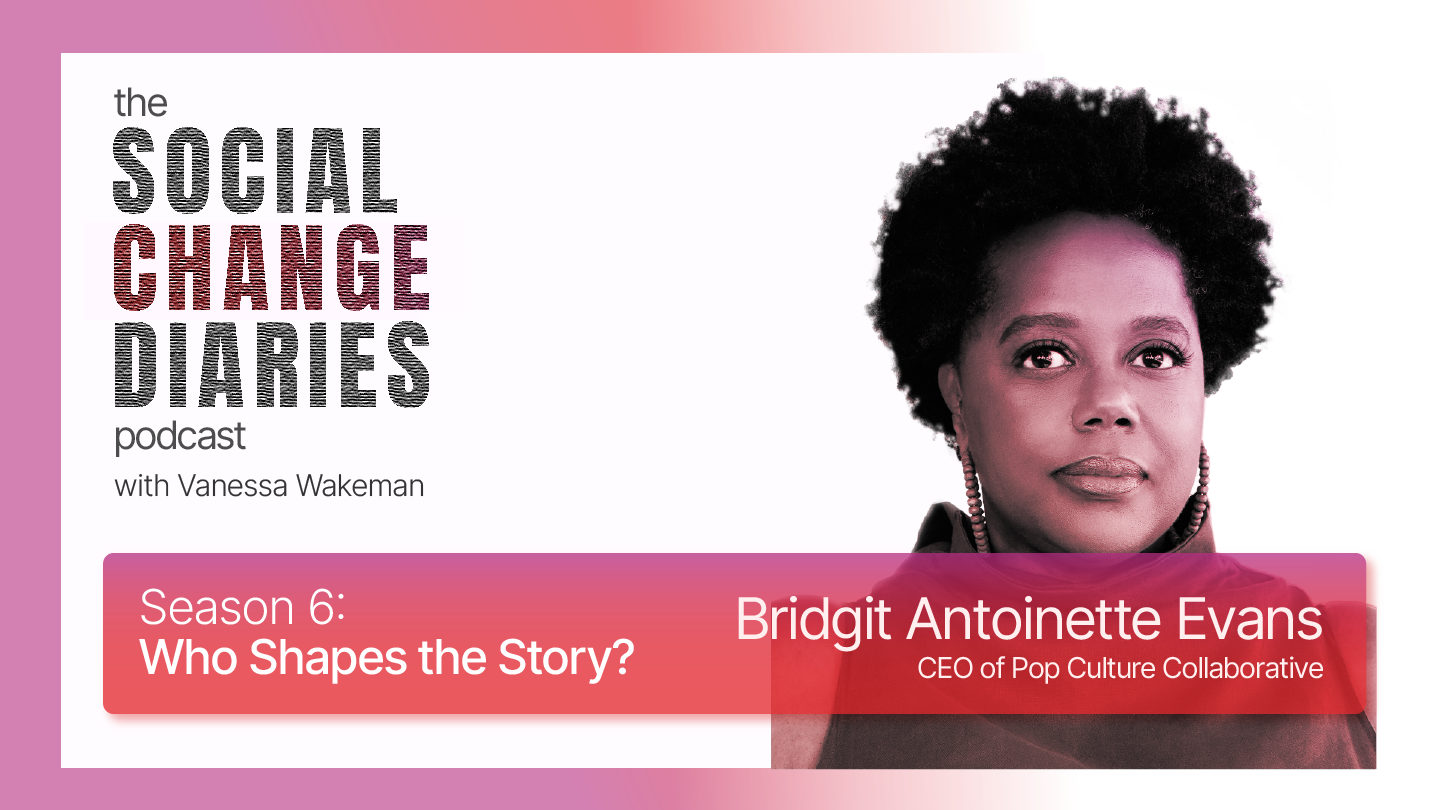
About This Episode
Vanessa sits down with Bridgit Antoinette Evans, CEO of Pop Culture Collaborative, to explore how storytelling can drive social change by reshaping culture and challenging deeply held beliefs. Together, they discuss the role of language as a tool for cultural transformation and what it means to navigate the vast ocean of narratives shaping our world.
About Bridgit Antoinette Evans
As a teen, Bridgit Antoinette Evans was obsessed with one question: What is the relationship between a great story and widespread cultural change? She has since explored this question of impact and scale from every angle—as an award-winning Off-Broadway and international actor-producer, a social impact advisor to high-profile artist-activists, culture change strategy designer collaborating with renowned social justice leaders, and narrative researcher for global foundations. Today, Bridgit is a widely respected narrative change thought leader, investigating this question as CEO of Pop Culture Collaborative.
In her words…
“Culture shift is when there is a sense of a tectonic shift in the norms, in the rules of society, in the way that we understand how the world works.”
“All of us are immersed in these kinds of deep, all-consuming environments—narrative oceans—except instead of water swirling around us, there are narratives and stories and ideas and norms.”
“A lot of our narrative oceans are incredibly toxic. They are dividing us, destabilizing us, creating incredible trauma in our communities, dismantling the social systems that we all care about.”
“Today, it’s not the story itself that we are congregating around. It’s actually the surround sound on a story that is the shared experience that we are having. Think about a mega successful film, like KPop Demon Hunters. It is a global phenomenon as the most-watched movie in Netflix history. But it’s not just that. It’s this huge narrative ocean of stories and content and relationships and experiences around the film that is the catalyst for cultural change. And it lasts much longer than just the film itself.”
“There is so much evidence and proof that people can change and that pop culture has a role to play, and storytelling has a role to play in how people change.”
Questions Answered on this Episode
- When we talk about culture change, through the lens of social change, what does that mean to you? What is your work, and how does it influence social change through cultural change?
- Do you think culture change drives the narrative, or is it the reverse?
- I tend to think of pop culture as trending—changing quickly—but how do you see pop culture, and how do you suggest social change organizations engage people through it?
- Where does language fit into cultural change?
- What would your advice be to an organization that wants to advance the understanding of a social issue, through the misinformation that’s out there? How can pop culture help support how people are thinking and talking about things?
- Where does technology come in? What do you see as the role of technology in cultural change as it relates to social change?
- What is the pathway for an organization that is trying to shift beliefs and shift understandings of topics that have been co-opted? How can they right the ship in this moment?
